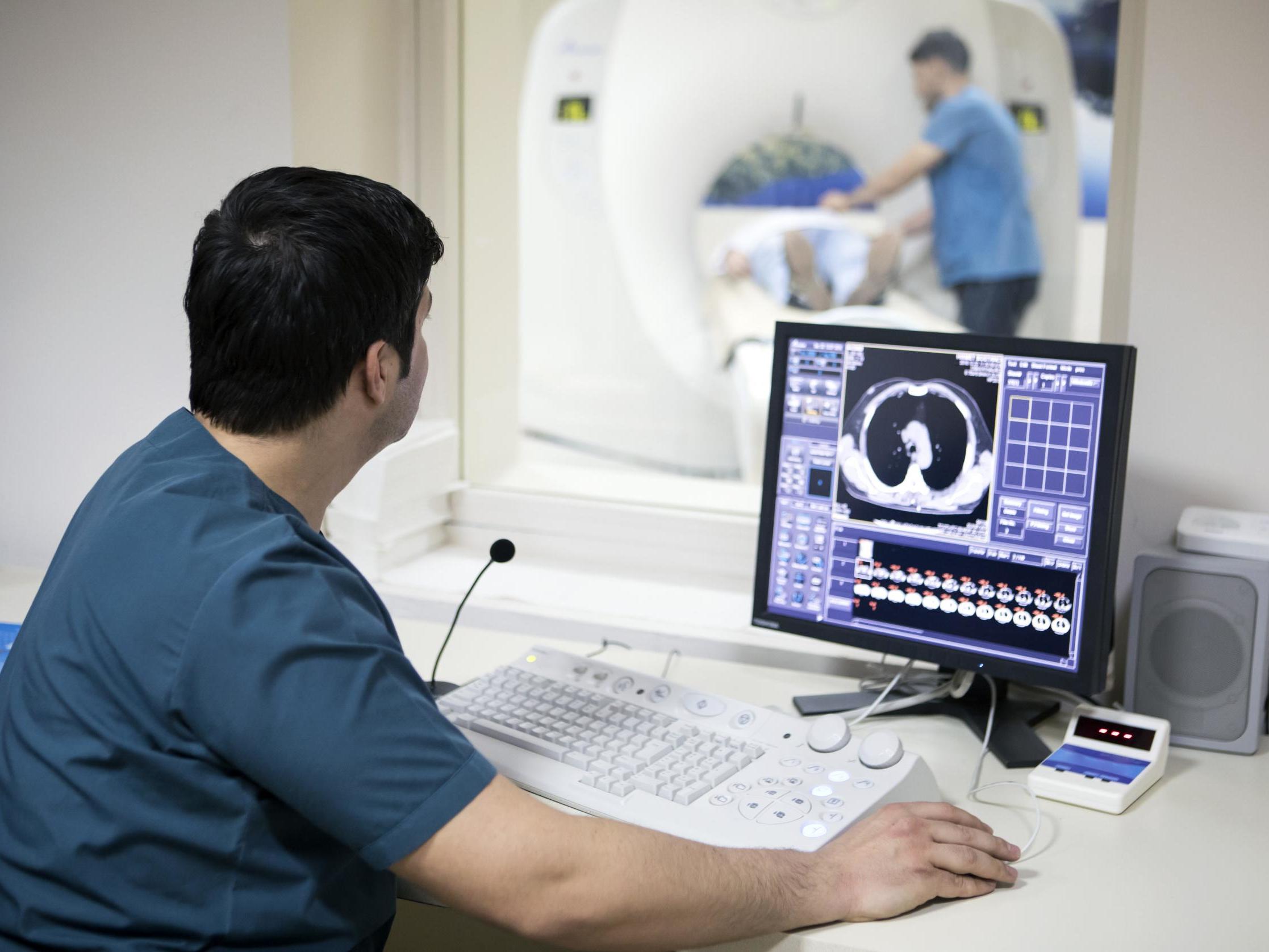Coronavirus: Hospitals to ‘maximise’ use of private sector to clear cancer patient backlogs
The number of patients waiting for cancer treatment is growing due to the coronavirus outbreak

Your support helps us to tell the story
From reproductive rights to climate change to Big Tech, The Independent is on the ground when the story is developing. Whether it's investigating the financials of Elon Musk's pro-Trump PAC or producing our latest documentary, 'The A Word', which shines a light on the American women fighting for reproductive rights, we know how important it is to parse out the facts from the messaging.
At such a critical moment in US history, we need reporters on the ground. Your donation allows us to keep sending journalists to speak to both sides of the story.
The Independent is trusted by Americans across the entire political spectrum. And unlike many other quality news outlets, we choose not to lock Americans out of our reporting and analysis with paywalls. We believe quality journalism should be available to everyone, paid for by those who can afford it.
Your support makes all the difference.NHS hospitals have been told to “maximise” their use of private sector hospitals for cancer surgery and diagnosing patients with suspected cancer in an effort to tackle growing backlogs.
NHS England’s national cancer director wrote to hospital chiefs earlier this week warning the number of patients waiting over 62 days to start treatment was growing during the Covid-19 crisis and needed action as “a priority”.
Dame Cally Palmer said patients referred with suspected cancer should be scanned as quickly as possible and hospitals should set up “multiple same-day tests” for patients to limit Covid-19 infection risks.
Her plea to the NHS comes as the latest data showed the numbers of referrals to the NHS had fallen dramatically, suggesting many patients were not getting checked and could end up being diagnosed late with cancer.
The call comes as The Independent revealed experts fear a backlog of more than a million pathology tests and hundreds of thousands of CT scans was building up while hospitals were unable to operate at more than 60 per cent of their usual capacity because of infection precautions.
The overall NHS waiting list for treatment could hit 10 million people by the autumn.
NHS England has already agreed to extend its contract with private hospitals beyond the end of this month and is in talks to agree a long term deal to treat more NHS patients privately to tackle long waits.
In her letter on Monday 8 June Dame Cally Palmer, who is also chief executive of London’s Royal Marsden hospital, said: “The number of patients waiting over 62 days to start treatment has grown during the pandemic, partly as a result of the impact of Covid-19 on endoscopy and other diagnostic services, and partly from clinical decisions to reschedule treatments to reduce the risk for individual patients of Covid-19 infection.
“Booking appointments for this group of patients is a priority. Local systems should schedule diagnostics or treatment for this group, alongside new patients referred into cancer services, on the basis of clinical priority.
“To support appropriate clinical decision-making, the focus for operational management should be on reducing the number of patients waiting more than 62 days.”
She said local areas must have “dedicated diagnostic and surgical capacity for people referred with suspected cancer to enable a return to pre-pandemic levels of activity, including by maximising use of independent sector capacity.”
She said while there had been a significant drop in urgent referrals during the height of the pandemic these were now starting to increase.
She said to help boost diagnostic work the 21 NHS cancer alliances should consider changes to reduce the risk of infection for patients by moving to a situation where some referred patients are immediately sent for imaging and hospitals look to carry out “multiple same-day tests” so patients don’t require several visits.
The NHS is also working to model the local demand in each region and plan what will be needed in the longer term.
Hospitals are looking to develop Covid-19 free hubs and rapid diagnostic centres that are separate from the main hospitals.
She added surgical capacity needed to be returned to pre-pandemic levels adding other non-surgical treatments needed to be restored as well as work to assesses the size of any backlogs and the level of activity that will be needed.
This planning will form a key part of NHS England’s recovery phase from the outbreak which saw more than 95,000 patients with coronavirus treated in hospitals.
Join our commenting forum
Join thought-provoking conversations, follow other Independent readers and see their replies
Comments